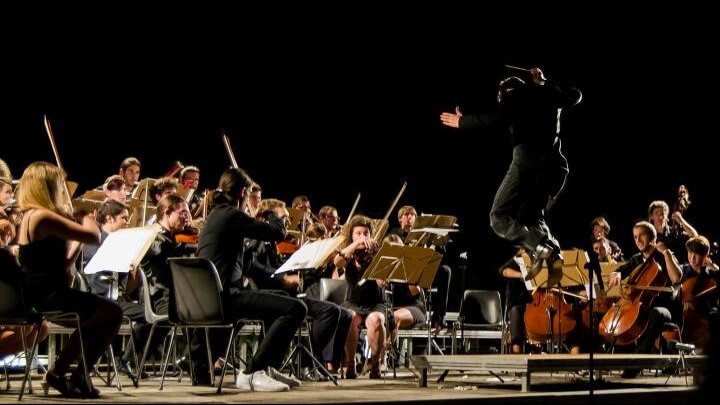As orchestras look to the challenges in their future, we cannot afford to overlook our natural allies. Whether in matters of public policy, the education of our country’s youth, or the deepening engagement with our communities, we must work closely with our partners in other music disciplines and the other arts, both locally and nationally. As we develop our agenda we need to pay increasingly close attention to how our communities are changing, and to their shifting priorities and new ways of engaging with the arts. And, if we are to be effective in strengthening our connection to the American public, then orchestras must speak with one voice – musicians, volunteers, board members, staff, music publishers, artist managers, all of us.
The Power of Unity
Orchestras are increasingly attuned to the context of the wider circumstances influencing their future. Our future - arguably the future of our society and culture - depends on an educated society, one able to navigate the changing demands of our world. At a time when our public school systems are often limiting opportunities for learning in seeming (perhaps misguided) support for higher test scores, the arts stand as a beacon of opportunity. Dynamic partnerships, such as those encouraged by SupportMusic and its affiliate organizations, are key to mobilizing the music community to speak up for the importance of music education in schools across our nation.
Young performers today share many commonalities: a passion for music, a joy in performance, a celebration of family. And, they share a common dependence, not only on their families, but also on the great teachers who have helped them develop their interests and skills.
On behalf of our nation’s extraordinary young musicians and all student learners, orchestras are launching a Statement of Common Cause to Support In-School Music Education.
Music Education Helps Create Audience Engagement
In a 2005 American Symphony Orchestra League survey of orchestras, the presence of music education in the schools ranked as a top priority. We know music education is essential for building audiences. Our data shows that 75% of those who identify as loyal supporters of our orchestras had a key musical experience in their schooling before the age of 14.
More importantly, we also know that music education is an essential component for shaping the citizens of the future. Where else but music education do we turn for opportunities for the exploration of ideas, for the development of skills that go well beyond numbers and literacy, for the development of creativity, and for the discovery of opportunities for renewal and satisfaction that can last a lifetime?
And yet, music programs are threatened in schools across the country.
In an effort to maximize our collective advocacy capacity, orchestras are aligning their local efforts in support of in-school music education. We all believe that the robust presence of music education in schools is key to healthy and economically vibrant communities; an innovative and smart workforce; and community members who believe that orchestras matter.
Orchestras Coordinate Nationally to Take Action Locally
The statement of common cause titled "Orchestras Support In-School Music Education” was workshopped over the past year with over 50 of the League member orchestra education and community engagement administrators to identify the principles and strategies central to effective local advocacy in support of in-school music education. The draft statement was then vetted by orchestra executive directors and League board members, and by our colleagues in a number of other national arts service organizations. The resulting document was launched at the League’s recent national conference this June, and we are inviting and challenging every orchestra across the United States to "sign on." The process of crafting the statement may be a useful model to adapt in other communities, nationally or locally.
The most effective advocacy efforts are driven by local needs, involve participation by all orchestra stakeholders, and are carried out in coalition with community partners. While executive directors officially sign the statement on behalf of their orchestras, they are strongly encouraged to first review the statement among orchestra staff, musicians, trustees and volunteers. The League’s web site also features a list of recommended first steps orchestras might take to begin or enhance their advocacy efforts, such as reviewing the statement with potential community partners in advocacy and learning more about the status of music education in their community. On the League’s site http://www.symphony.org/musicedadvocates/ and on this one, there are many useful advocacy resources that can help orchestras take action, including links to the Community Action Advocacy Toolkit provided by our partners in the Supportmusic.com coalition.
Orchestras are aligning themselves, in this very concrete way, to advocate for the sustainability - and growth - of in-school music education. Music education is good for our local communities, good for our orchestras, good for our country - indeed it's vital to our collective future.

